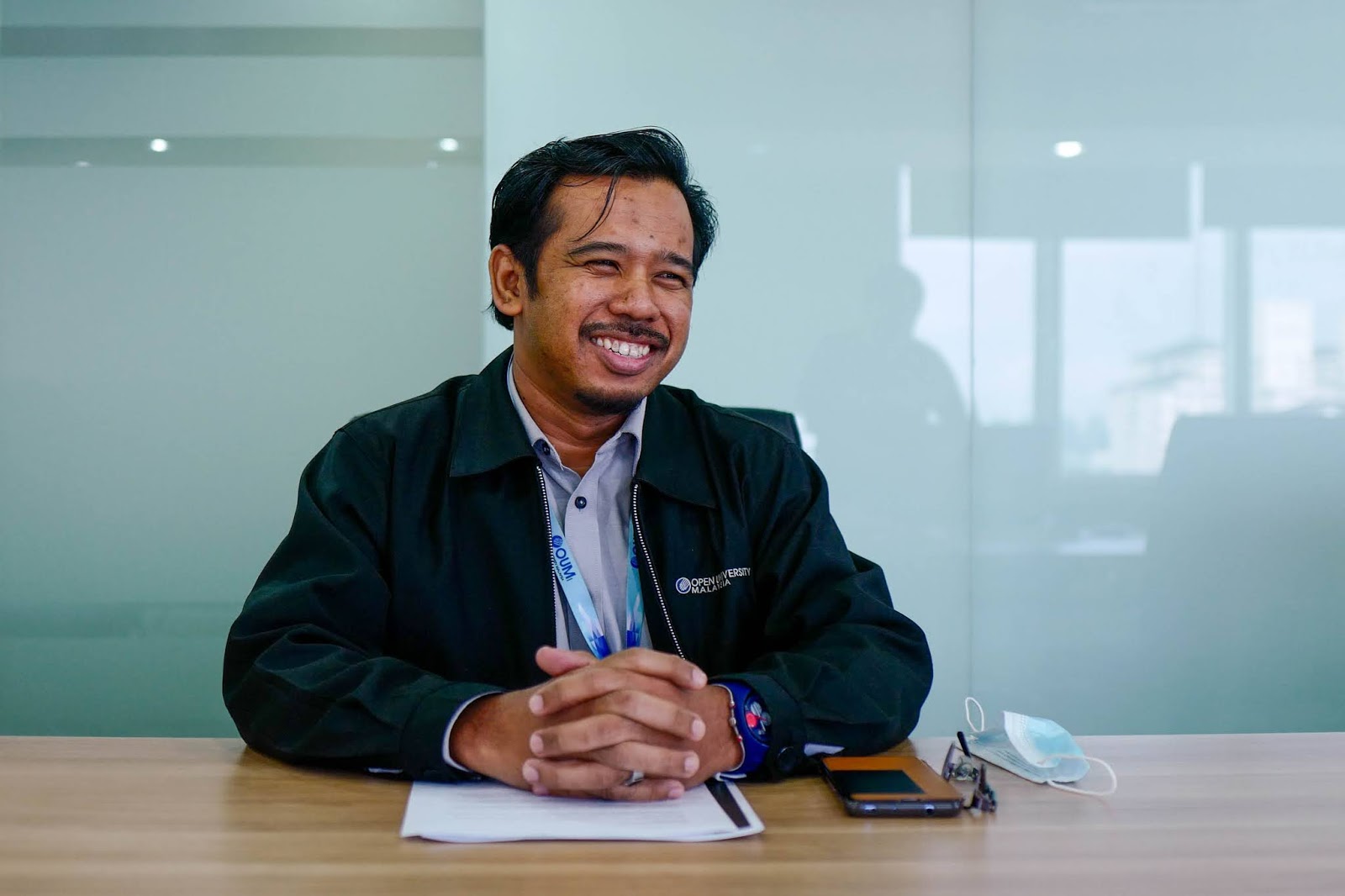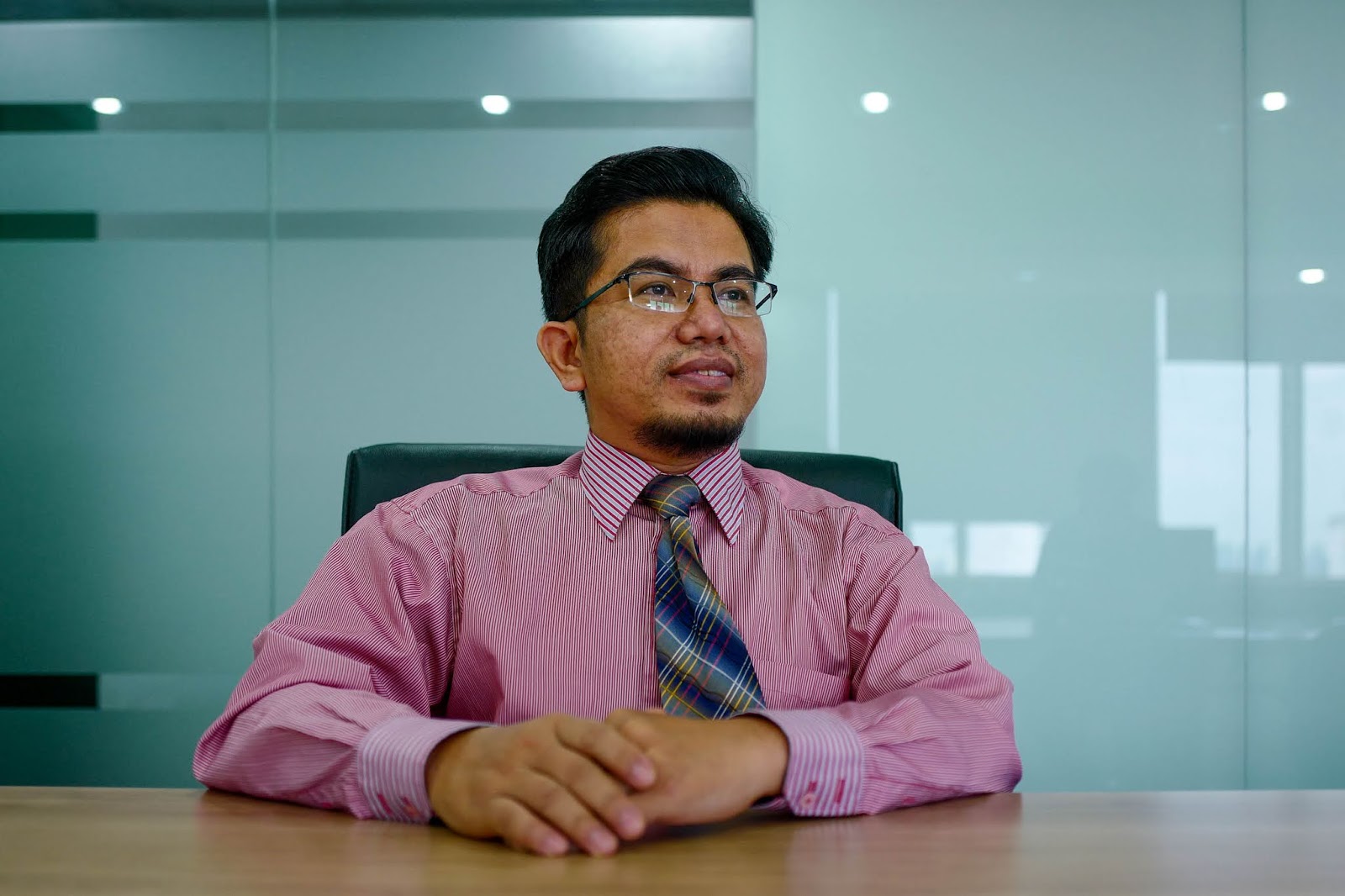OUM: Libraries vie for readers amid digital deluge of videos and viral content
June 24, 2020
Only three decades ago, libraries were the world's main reservoir of knowledge, but today, they might seem as old-fashioned as encyclopedias.
In the fourth part of our series of food-related interviews with senior faculty members of Open University Malaysia, we spoke to Mr Suhaimi Jamaludin, OUM's Chief Librarian, on how libraries can remain relevant to readers, instead of becoming a pre-Wikipedia relic.
EDKL: Good morning, Mr Suhaimi! This is a treat - we often chat with chefs but rarely with a librarian! What books do you have in your library about food?
MR SUHAIMI: Our library has collections in two versions - printed and digital. At OUM, we focus on the digital, but we do have books on food and newer ones on food technology.
One of our published recommendations is about fashion as well as food - The Nyonya Kebaya: A Century of Straits Chinese Costume. Our late Chancellor was an enthusiast of Baba Nyonya styles.
We also carry e-books like Food Culture of Southeast Asia: Perspectives of Social Science and Food Science, which helps readers understand how the food culture in Southeast Asia is evolving, as well as magazine articles on topics such as Nothing Says 'Malaysia' Like Nasi Lemak Does.
EDKL: That sounds like interesting reading. The library is exclusively for OUM students?
MR SUHAIMI: Our digital library and physical library can be accessed by OUM's current students as well as alumni who've graduated. We have more than 90,000 e-books, 190,000 e-journals related to programmes we offer in OUM, and about 20,000 printed books. Students can access the digital library anytime, anywhere, from their mobile phones, tablets or laptops - they have unlimited access, whether they're in Malaysia or overseas.
EDKL: Sounds like a lifetime's worth of reading. How else you tried to keep up with these digital times?
MR SUHAIMI: We have a YouTube channel, sharing how to use our digital library, how to search for e-books and e-collections. If there are university programme directors who are interested to collaborate with the library on video projects, we will work together - we can even work with a food channel to showcase our collection. We also update our Facebook and Instagram pages to adapt to the latest social media needs.
EDKL: Do libraries struggle for attention, since there are so many free online sources of information now?
MR SUHAIMI: People do ask if libraries are still relevant. Where do we get our information now? We usually just Google - Google is more powerful.
But when you want a reliable article, you still go back to the library, especially for academic matters, when you have to cite quotations from authoritative authors and sources to bolster your writing.
We have all the academic books needed for students of our programmes - business and management are the most popular. Safety and health are popular too, as well as education and psychology.
EDKL: It's getting difficult though to get people to read.
MR SUHAIMI: People nowadays prefer to watch videos, especially viral ones. Simple cooking videos can go viral throughout Malaysia - one of the best recent local examples is the YouTube channel of Sugu Pavithra, with cooking at home for the family.
In the past, the university has worked on events with prominent local chefs like Chef Ismail Ahmad, Chef Adu Amran and Chef Florence Tan. If we ever introduce a new food-related course in OUM, we could support that with chef video collaborations if necessary. At OUM, the library collaborates with the Centre of Instructional Design and Technology to develop our multimedia content.
EDKL: Has the library seen encouraging usage in recent times?
MR SUHAIMI: It depends on the academic schedule - assignment months are our peak times. For the physical library, weekends are often full, especially now, since our normal maximum capacity of 50 has been reduced for social distancing.
Our digital library is in high demand. Within six weeks of the Movement Control Order, we had about 100,000 hits for users accessing the library, with about 28,000 downloads. This was an increase of about 28% compared to the same month in the previous year - coincidentally, everyone was staying at home at the same time as our assignment and examination weeks.
Open University Malaysia's flexible-entry intake is currently underway, offering online programmes for diplomas and degrees in a wide variety of fields.
You can use your working experience to gain admission and graduate faster through APEL in OUM.
Read more about OUM: oum.edu.my
Read more about OUM's APEL flexible entry: apel.oum.edu.my
Sign up now: fastrac.oum.edu.my
You Might also Like






